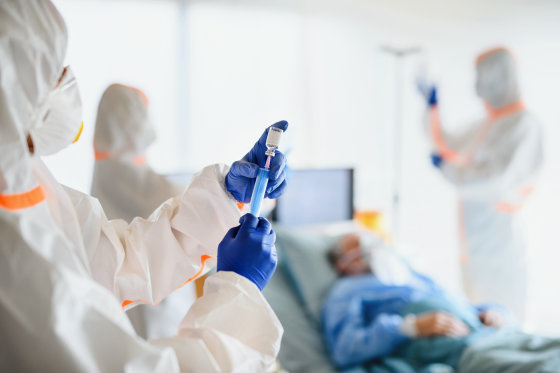Survey results that new corona drug increased mortality and heart disease risk of hospitalized patients

Although
Hydroxychloroquine or chloroquine with or without a macrolide for treatment of COVID-19: a multinational registry analysis-The Lancet
https://www.thelancet.com/journals/lancet/article/PIIS0140-6736(20)31180-6/fulltext
Hydroxychloroquine linked to increase in COVID-19 deaths, heart risks | Ars Technica
https://arstechnica.com/science/2020/05/hydroxychloroquine-linked-to-increase-in-covid-19-deaths-heart-risks/
Hydroxychloroquine is used not only as an antimalarial drug but also to reduce inflammation in rheumatoid arthritis.On March 19, 2020, President Trump said, `` Hydroxychloroquine and its analogs, chloroquine and antiviral drugs. I think lem decivil may be a game changer, 'he said .
Since COVID-19 has not yet been established as an effective treatment, a doctor, in anticipation of approval of hydroxychloroquine use for COVID-19 patients, in response to President Trump's statement, illegally issued a prescription. It was also reported that there was a situation to secure hydroxychloroquine for himself and his family.
`` Doctors are trying to buy up unproven new coronavirus treatment drugs in advance, '' pharmacists accused, and there are cases where the drug does not reach people who really need it-GIGAZINE

Then, on March 31, the US Food and Drug Administration (FDA) issued an emergency use permit for hydroxychloroquine and chloroquine phosphate to COVID-19 inpatients. On the other hand, hydroxychloroquine had been alerted for the side effects of syncope, cardiac arrest, and sudden death.
However, a new peer-reviewed paper published in the medical journal Lancet announced that two drugs, hydroxychloroquine and chloroquine, significantly increase the risk of death and heart complications in hospitalized patients. ..
The study is the largest ever conducted by a research team led by Dr. Mandeep Mela, a medical professor at Harvard University, targeting more than 96,000 COVID-19 hospitalized patients on six continents. The average age of the subjects is 54 years, and 54% of the subjects are male.
Of the patients, 15,000 received hydroxychloroquine or chloroquine within 48 hours of being diagnosed with SARS-CoV-2 positivity. Of the 15,000 people, 1868 received chloroquine, and 3883 received macrolide antibiotics along with chloroquine. 3016 were given hydroxychloroquine and 6221 were given hydroxychloroquine and macrolide antibiotics together. The other 81,000 were treated as a control group in the study because they were not given the two drugs during hospitalization.

When the researchers focused their analysis on 'risk of death in hospital' and 'risk of serious cardiac arrhythmia,' the following four points were concluded.
Patients who received only hydroxychloroquine had a 34% increased risk of death in hospital and a 137% increased risk of serious cardiac arrhythmias.
Patients in the hydroxychloroquine and macrolide antibiotics group had a 45% increased risk of death in the hospital and a 411% increased risk of serious cardiac arrhythmias.
Patients in the chloroquine-only group had a 37% increased risk of death in the hospital and a 256% increased risk of serious cardiac arrhythmias.
Patients in the chloroquine and macrolide antibiotics group had a 37% increased risk of death in hospital and a 301% increased risk of serious cardiac arrhythmias.
However, there is a limitation in that this study is an observational study and not a randomized controlled trial that is scientifically regarded as 'strong evidence'. Randomized controlled trials are considered necessary to identify the risks and benefits of the drug.
In addition, the researchers adjusted the possible factors in the analysis, but it is possible that other unmeasured factors may have affected the course of the disease. In addition, it should be noted that this study was only for inpatients and did not address the risk of milder patients who do not need to be hospitalized.
Related Posts:
in Science, Posted by darkhorse_log







